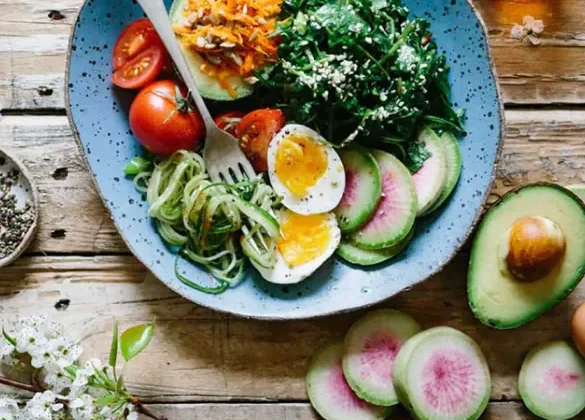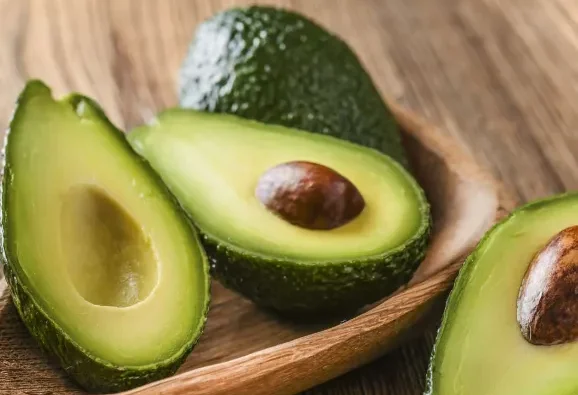It’s frustrating when you’re trying to eat healthier, yet cravings for junk food like chocolate, chips, or soda keep creeping in. While it’s tempting to just push through with willpower, this approach often doesn’t work in the long term and can lead to overeating or giving up entirely. Instead of constantly battling cravings, it’s more effective to understand their root causes and address them directly. Here are seven practical tips to help you conquer food cravings once and for all.
1. Prioritize Sleep
Lack of sleep can significantly affect your hunger hormones, causing an increase in ghrelin, which makes you feel hungrier and crave quick sources of energy like sugar and carbs. To avoid this, aim to get enough sleep each night—at least 6 hours, though it may vary for some people. Creating a relaxing bedtime routine, limiting screen time, and using calming essential oils are just a few strategies that can improve your sleep quality and help reduce cravings.
2. Don’t Skip Meals
Skipping meals or eating very small portions, especially for breakfast or lunch, can leave you feeling ravenous later in the day, triggering strong cravings. It’s important to fuel your body with enough energy throughout the day. Focus on nutrient-dense foods—rich in vitamins, minerals, and protein—that help you feel full longer. For example, larger portions of vegetables and lean protein can help prevent late-night snacking. Try to eat meals with around 350 calories, and include healthy snacks if needed to maintain steady energy levels.
3. Incorporate Regular Exercise
Exercise is a great way to keep cravings in check. Engaging in regular physical activity—like running, swimming, or strength training—helps balance hormones and reduce hunger. After a good workout, your body needs to refuel with healthy food, and you’re less likely to crave unhealthy snacks. Make sure to eat a hearty, protein-rich meal within 30 minutes of exercising to replenish energy stores and keep your appetite in check.
4. Manage Stress and Anxiety
Stress can drive cravings for comfort foods, particularly high-carb and fatty options. When we’re stressed, our bodies often seek out quick energy (sugar) to cope with perceived threats. Instead of reaching for unhealthy comfort foods, try consuming wholesome carbohydrates and healthy fats, like fruits, vegetables, and nuts, to nourish your body. Additionally, find non-food ways to relieve stress, such as taking a walk, praying, journaling, or calling a friend. You can also use calming herbs or essential oils to help relax during stressful times.
5. Find Healthier Substitutes
When cravings for specific foods become hard to resist, finding a healthier substitute can be helpful. For example, if you crave sweets, try having a protein bar with a similar taste and texture, like a chocolate chip cookie dough protein bar, to reduce sugar intake. Over time, your cravings will decrease, and you’ll be able to enjoy small portions of your favorite treats without overindulging. If you’re trying to curb cravings further, consider using MetaPWR essential oils or softgels, which may help reduce appetite and cravings, while also promoting fat loss.
6. Pray for Strength
God cares about every aspect of our lives, including our struggles with food. When cravings feel overwhelming, invite God into those moments and ask for His strength to resist temptation. 1 Corinthians 10:13 reminds us that God will provide a way out when we face temptation. Trusting Him with our cravings can lead to greater self-control and a healthier relationship with food.
7. Break Bad Habits and Rituals
Cravings are often linked to specific habits and routines, such as having popcorn at the movies or chocolate after meals. These rituals become automatic, making it hard to resist the urge to indulge. To break this cycle, try changing your routine. Instead of snacking while watching TV, take a walk after dinner or make a cup of tea. Consistently replacing old habits with new ones will help you break free from unhealthy cravings and create lasting change.
By incorporating these seven tips into your daily routine, you can take control of your cravings and develop a healthier relationship with food. Over time, these changes will help you feel more confident and in charge of your choices, making it easier to reach your health goals.











